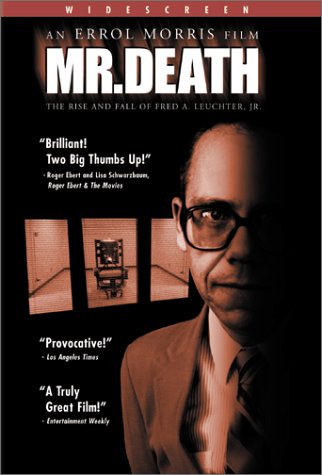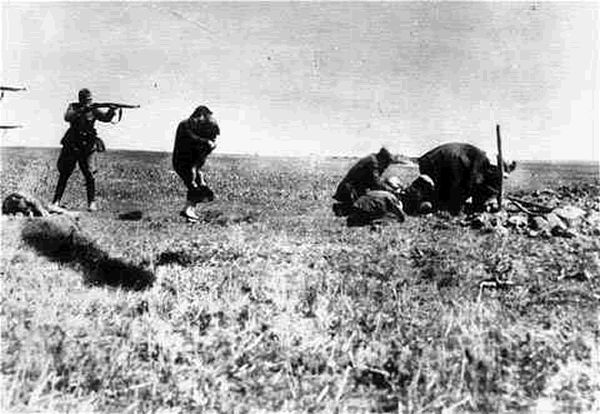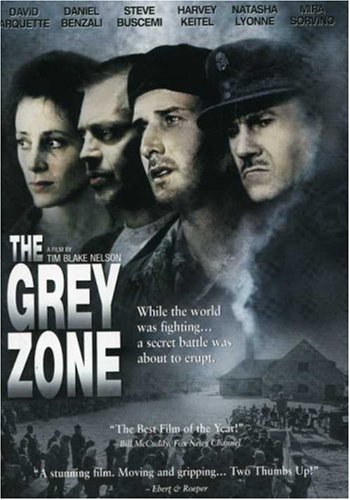I’m teaching my high school classes the Diary of Anne Frank this semester, and I want to finish off the last couple of classes with a movie. What do you recommend? Most of these kids have no idea of what Hitler, the Nazis and the concentration camps were all about, and I think it’s important that they learn.
Schindlers LIst
Not sure you will beat Schindler’s List.
If you really want to push them into despair (!) there’s a documentary called The World at War. The episode Genocide is not easily forgotten - no acting, just film of what actually happened.
Anne Frank’s story was dramatised by the BBC, recently. It was incredibly moving. See if you can download it somehow. The girl who played Anne was a new actress and was exactly how I imagined her. The adults were all respected British actors such as Lesley Sharp. Adapted by the novelist, Deborah Moggach and very true to the spirit of Anne’s diary. I’ve read the diary many times, but this dramatisation really gave it a new dimension.
It’s not in English, but ‘Life is Sweet’ is a film that made an impression on me. There’s a lot of humour in the story which may be more engaging for kids than full on horror.
Also, I haven’t seen it personally, but ‘The Boy In Striped Pyjamas’ comes recommended. It’s told from the point of view of children. It was rated ‘12’ in the UK, so suitable for viewers aged 12 and above; Schindler’s List was rated 15 and is fairly harrowing (and long). Unless the kids are particularly mature and focused, I would question whether ‘Schindler’s List’ would be a good choice for a number of reasons.
There’s a screen play, bassed very closley on the book that was dramatized and recorded in the 60’s. That’s what we’re watching in the 8th grade reading class right now–having read the play. It’s a good look at what life was like for the Frank’s and Co., but doesn’t go into any kind of detail of the horrors outside the hiding place–there are sounds of bombings going on outside as they live their hidden lives, but that’s all. Also, in this play, the Franks have a radio hidden in a book–I don’t believe that was accurate.
This is a link to as site about this production, if you’re interested. tcm.com/tcmdb/title.jsp?stid … ry=trailer
I admit that I haven’t seen Schindler’s list–as I don’t have a lot of opportunity to watch anything without my boy, so I can’t say anything about that one.
I agree with Buttercup that “Life is Sweet,” or “La Dolce Vida,” is very good.
It would be really cool to fuck their minds by showing a decent doco on contemporary Palestine.
“You see, once you get Royally fucked over, then you can fuck anyone else you like over and always have a reason to justify it.”
HG
You might show 'em Sophie’s Choice, too. That movie packs quite a wallop.
If you can get your hands on a copy of Alain Resnais’s Night and Fog, that too (although it’s pretty graphic).
Another holocaust movie I like, mainly because it really shows just how small the step is from human to monster, is Errol Morris’s Mr. Death. Fred Leuchter is just the prototype for the kind of human who could shed his humanity in a heartbeat, do awful things, and surely tell his captors that he did nothing, knew nothing, and besides, everybody else was going it, too.

There are so many films about the Holocaust, especially many small budget films from Eastern Europe. It’s hard to choose.
However, for a high school class I would go with something commercial like ‘Schindler’s List’, ‘The Diary of Ann Frank’, or even
‘Jakob The Liar’.
However, for more of the real nitty gritty I would suggest ‘The Grey Zone’.
Exceptionally powerful stuff, but perhaps for a more mature audience.
Schindler’s List
The Counterfeiters
Life is Beautiful
The extensive BBC documentary series
If the term Holocaust is to be used, rather than the more accurate Shoah, it should be capitalized.
You’re right.
Corrected.
Apologies in drunken hindsight for my earlier comments.
There is, among all the horror, one pic that may prove useful as an inroad to a discussion or a film. Given the context, i don’t apologise for showing it here. This pic has haunted me from the day I first saw it. I guess it’s the futile attempt of this doomed woman to protect her child, or at the least spare the poor wretch the worst of the final moment. The brutality of the wanker aiming at such close range . . . I’m damned close to weeping agin at the emotions this conjurs for me.

[quote]Mass Murder Einsatzgruppe member kills a Jewish woman and her child near Ivangorod, Ukraine. 1942. Credit: Jerzy Tomaszewski, Poland
Mobile killing units (Einsatzgruppen) followed the German army during its invasion of the Baltics and the western Soviet Union, first killing Jewish men, Soviet political commissars, and others considered racially or politically dispensable. Months after the invasion, Mobile killing units turned to the execution of women and children. Open air killings continued in areas of eastern Europe during 1942 and by the spring of 1943, Einstagruppen units A-D had killed over million persons. …[/quote]
HG
I think it’s also important to highlight that while jews were the primary scapegoat and target, Nazi Germany also destroyed a lot of other populations including their “own”.
- homosexuals
- handicapped
- political dissidents
- gypsies
and once Russia was invaded, the Germans abused and killed “Slavs”.
these were all found in concentration camps, “euthanasia hospital” and “experimental” hospitals. This is not to detract from the “Jewish” holocaust, but to emphasize that others were also victims, maybe not as terrifying in absolute numbers, but surely just as terrifying in the acts themselves (and proportionally ie if 100% of handicapped were killed, but in the 10s of thousands, not millions).
How about the pianist?
And then, because maybe this is too serious/depressing, how about Springtime for Hitler (ie the Producers) by Mel Brooks for afterwards.
Werner Herzog’s “Invincible”; Tim Blake Nelson’s “The Grey Zone”; Roman Polanski’s “The Pianist”; and opening on Jan. 24 in New York and Los Angeles, Costa-Gavras’s “Amen.”
Then, one could highlight that not all Nazis were the same. Some Nazi party members in Shanghai, for example, protected and saved many Chinese from the Japanese. (there had been a relatively long period of sino-german cooperation despite the Axis treaties).
I haven’t seen many Holocaust movies, so I’m not qualified to answer the question. However, I think Europa, Europa would be good, even though it doesn’t focus on the horrors of the camps, because it gives a good context for the whole thing. I think it covers a period from a little before Krystallnacht to the end of the War, and the main character is a very young man, probably exceptionally bright, but otherwise much like any other, who’s just trying to survive the whole thing. It’s supposedly based on a true story.
Edit: Yikes, it just occurred to me that the movie is in German, and the version I saw had English subtitles. Just thought I’d mention that.
Edit No. 2: From a quick check using Google, it seems possible there’s an English-dubbed version.
Am I the only guy in Asia with a fuckin shift key here???
JB, as Wiki notes:
So Mr. Man’s question has nothing to do with:
As opposed to the “other” holocausts??
W?
T?
F?
[quote=“Jack Burton”]…but to emphasize that others were also victims, maybe not as terrifying in absolute numbers, but surely just as terrifying in the acts themselves (and proportionally ie if 100% of handicapped were killed, but in the 10s of thousands, not millions).
[/quote]
Why would you want to “emphasize” that aspect, over the other aspect, I mean the “jew” holocaust??
[quote=“Jack Burton”]
And then, because maybe this is too serious/depressing, how about Springtime for Hitler (ie the Producers) by Mel Brooks for afterwards.[/quote]
Uh, right, because, you know, black humor is so easily grasped by most locals.
[quote=“Jack Burton”]
Then, one could highlight that not all Nazis were the same.[/quote]
Uhh, dude, I can’t even think of an answer to this one…
:loco:
I respectfully disagree, and I do not mean to offend.
it’s not as crazy as it sounds. Yes, I understand what you mean by “Holocaust” capitalized H. But my intention was to note the fact that concentration camps, while mostly filled with European Jewry, had other victims of the Nazis. Since we associate concentration camps with the Holocaust, why not talk about all the victims of concentration camps.
ok, i forget to capitalize - not like I was trying to be offensive.
Springtime for Hitler was a joke - I’m thinking Taiwanese kids might not get it.
One of my points was that Hitler’s racial purity/German master race ascendency philosophies resulted not just in the targeting of European Jewry, but also all other “undesirables”. FYI, I’ve spoken to one or two concentration camp survivors when I was in high school, and they seemed to have no problem including other camp victims as part of the “Holocaust” - it’s not exclusive to Jews IMHO.
If you want to define Holocaust as a Jewish-only experience, then we have to agree to disagree. I think it’s more historically accurate to include non-Jews who were also killed in concentration camps, etc.
Re: the Shanghai thing, I’m sure the Taiwanese kids would be interested to learn about something closer to home (and it’s along the lines of Oskar Schindler who decided to rescue victims from the Axis - it’s analogous), so it’s not that outlandish.
I understand Maoman’s original question, but I don’t think my post is irrelevant.
I note also you were quite selective in your quoting of Wiki. I quote the entire paragraph:
I also note further down in the Wiki article:
[quote]
The word holocaust is also used in a wider sense to describe other actions of the Nazi regime. These include the killing of around half a million migrant Romani peoples, the Roma and Sinti, the deaths of several million Soviet prisoners of war, along with slave laborers, gay men, Jehovah’s Witnesses, the disabled, and a vast assortment of perceived potential troublemakers and political opponents. The use of the word in this wider sense is objected to by many Jewish organizations, particularly those established to commemorate the Jewish Holocaust. Jewish organizations say that the word in its current sense was originally coined to describe the extermination of the Jews, and that the Jewish Holocaust was a crime on such a scale, and of such totality and specificity, as the culmination of the long history of European antisemitism, that it should not be subsumed into a general category with the other crimes of the Nazis.[/quote]
I further contend that what Dr. Mengele did to the Roma at Auschwitz is part of the Holocaust:
So I guess there is disagreement as to whom the word “belongs to.” I’m of the opinion that the Jews do not hold a monopoly. I do not think it “dilutes” the crime, so to speak. So our disagreement is definitional, and should not be taken as a judgment.
I think you mean Life is Beautiful (La Vita è Bella) . I would agree that this is a suitable film for high-school students, except that it is in Italian, whereas Maoman want to do this as part of his English teaching. When I watched it I had trouble deciding whether to struggle listening to the Italian dialogue or struggle reading the Chinese subtitles.
I think you mean Life is Beautiful (La Vita è Bella) . I would agree that this is a suitable film for high-school students, except that it is in Italian, whereas Maoman want to do this as part of his English teaching. When I watched it I had trouble deciding whether to struggle listening to the Italian dialogue or struggle reading the Chinese subtitles.[/quote]
Yup, sorry, this dumbass mixed it up with the Mike Leigh film. A thousand blushing smileys.
Hmm. Many do have a problem with it, though: Polish Catholics in Oświęcim, for a a start.
I may be mistaken, but that’s not really my understanding of the term, JB, from lessons at school, etc.
I think you mean Life is Beautiful (La Vita è Bella) . I would agree that this is a suitable film for high-school students, except that it is in Italian, whereas Maoman want to do this as part of his English teaching. When I watched it I had trouble deciding whether to struggle listening to the Italian dialogue or struggle reading the Chinese subtitles.[/quote]
Great film. When it finished, I walked out of the cinema in floods of tears. Some people don’t like it because on a literal level, it’s not the most accurate depiction of historical events. But I think that that’s exactly what made it so affecting for me—the irony of that sweet story being overlaid on the horrific situation that we all know about. You need the light to make the dark truly dark.
I’m going to go with that, also. And the episode in Band of Brother’s when they discover the concentration camps.
